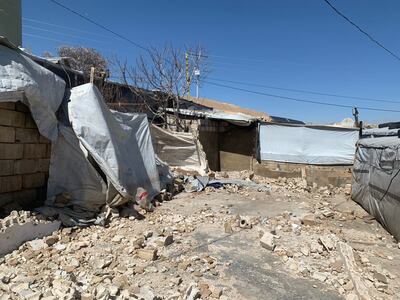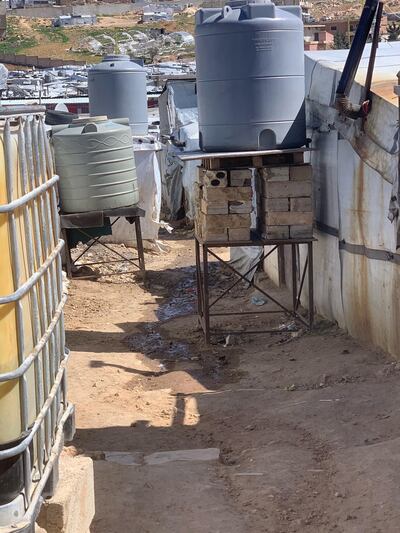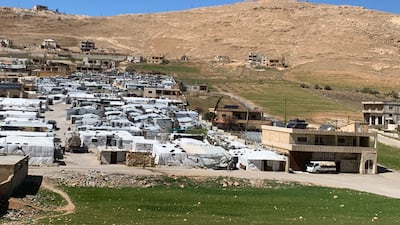Wind is pounding the camps where Syrian refugees live in the Lebanese town of Arsal, straining tent walls held down by concrete blocks.
Inside, where flimsy cardboard walls shake and ripped tent sheets billow, the roar of the wind only multiplies in the small rooms where families live.
A predominantly Sunni Muslim town that sits in the hills and mountains that border Syria, Arsal lies almost in a rocky crater, surrounded by hills that show the remnants of winter snow.
It is a bleak scene at the best of times, but the reportedly 77,000 refugees there — they make up about two-thirds of Arsal’s residents — are living through a difficult Ramadan.
Regardless of which of the many scattered camps they live in, the story is the same: a slashing in aid and financial support and the wider economic crisis in Lebanon, among a litany of other issues, have worsened the situation.
Abu Ali Rifai, a leader in one of the Arsal camps, has been without gas for days as he struggles to pay for expenses including rent and water transport.
“We still haven’t figured what’s going to be for Iftar tonight. We’re not sure what to cook — we cannot cook,” he told The National.
“We were just talking about it, but we didn’t get the chance to even think about it. Because even before thinking about what to eat, we are thinking about what to do with the tents that have been falling apart because of the wind. Since the morning, we’ve been occupied with that,” said Mr Rifai, who has been in Lebanon for 12 years and is from the Qalamoun mountains.

Given the lack of food, he fears some children in the camps are becoming too skinny and risk malnutrition. Many are relying on mainly bread diet, the price of which itself is increasing amid the rampant inflation in Lebanon.
“My child was asking me what are we eating today? I told him I didn’t get a chance to think about it yet because of the tent issue. What can I tell a child asking me what to eat?”
His story is similar to many in Arsal’s refugee camps, where there always seems to be problems.
Last autumn cholera broke out in the camps, while skin infections are increasing.
Flooding is common, and families are forced to burn unsuitable and potentially dangerous materials to stay warm as the cold lingers high up in the mountains.
UN agencies said that about 90 per cent of Syrian refugee families in Lebanon need assistance to survive.
Lutfi, the leader of another Arsal camp, said people are rationing or rely on each other.
This comes amid the background of the ever present rhetoric from some in Lebanon who resent the presence of Syrian refugees. The latter number more than one million in the country of about six million.
Mahmoud Youssef said he fled his home country for safety but now finds himself in a worse situation in Arsal.

The camp was recently flooded with sewage, while one tent was destroyed by the wind.
Mr Youssef has a wound on his head from a tent collapsing on him as he tried to fix it. He complains about the increased cost of buying water.
“What can we say? There’s no food to eat, no water to drink,” he said with tears in his eyes.
“I don’t have food to eat during Ramadan,” said Mr Youssef, who has been in Arsal since 2014.


